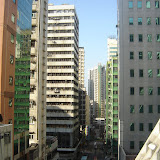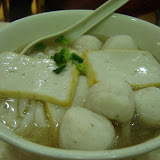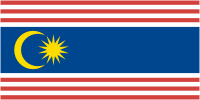We will be having a conversation with Dr. Chandra Muzaffar when we are in Malaysia. He is currently serving as the President of the International Movement for a Just World (JUST). You may want to check out the JUST website for writings on current issues, nationally and internationally, by Dr. Muzaffar. They are very enlightening. The website is http://www.just-international.org/.

Mausoleum of Khai Dinh, 12th emperor of Vietnam 1916-1925, in Hue (central Vietnam). The tomb was built beginning in 1920 and completed in 1931.
Our group will be hearing from and having conversation with the program manager of "Sisters in Islam," an NGO committed to the following:
- Promoting and developing a framework of women's rights in Islam, which takes into consideration women's experiences and realities;
- Eliminating injustice and discrimination against women by changing practices and values that regard women as inferior to men;
- Creating public awareness, and reform laws and policies, on issues ofequality, justice, freedom, dignity and democracy in Islam.
MCCBCHST representatives meet Deputy British High Commissioner
There is a worrying downward trend in inter-ethnic and inter-faith relations in the country, said a spokesman of the MCCBCHST EXCO at a recent meeting between representatives of the MCCBCHST and the Deputy British High Commissioner of Malaysia, Mr. Patrick Moody.
How can Malaysia be a model for dialogue as stated by Mr. John Prescott, the DPM of U.K. when he visited Malaysia recently, another added.
Other religious representatives present also added their voices to concern of minority religious communities in Malaysia.
Mr. Moody, in his response assured the people present that the British government monitors very carefully the political developments in the country. When our DPM Mr. Prescott visited Malaysia, the interfaith relation was not the single issue of his visit. said Patrick Moody.
However, as a plural society, Malaysia has managed to retain political stability and to a considerable extent, its social cohesion, he emphasized.
He is following very closely, the different ways the Federal Constitution is being interpreted, and in some ways threatening the delicate balance that holds the country together.
He agreed with the MCCBCHST that dialogue between all parties in interfaith relations is crucial. The more people are not talking together, the more they shall be talking against each other, he went on to say.
He informed the MCCBCHST that the U.K. government encourages British Muslims with moderate views to visit Malaysia and share their experiences. One or two of such visits in the past have proven to be useful in the on-going dialogue process.
The meeting ended by MCCBCHST calling on the Deputy High Commissioner to organize occasional dialogue sessions so that the views of all religious communities in Malaysia will be taken into account. Such views should be communicated to visiting dignitaries of the U.K. government in the future.
The CFM EXCO was represented at that meeting by Rev. Thomas Philips, Rev. Dr. Hermen Shastri and Mr. Leonard Teoh.
MCCBCHST Press Statement - UMNO General Assembly Cause for Concern
The Malaysian Consultative Council of Buddhism, Christianity, Hinduism, Sikhism and Taoism (MCCBCHST) is deeply concerned at developments at the recently concluded UMNO General Assembly. Although we appreciate the Prime Minister's sentiments in his final speech when he called for tolerance and mutual respect, the comments from other ministers, leaders and delegates are oppressive, deeply disturbing and manifest a lack of tolerance and respect for non Muslims.
It must always be remembered that Article 3 of the Federal Constitution reads in full that "Islam is the religion of the Federation; but all other religions may be practised in peace and harmony." Article 11 protects the freedom of religion of all Malaysians, and the freedoms of all religious communities to practise their faith.
The Article 11 coalition's initiatives are regrettably not well understood and have been misconstrued. The forums did not attack any religion, but merely pointed out that the Constitution protects the rights of all Malaysians. We regret the hasty end to the fruitful forums organised by the coalition.
Component bodies of the MCCBCHST were also key participants in the initiative towards the formation of an Interfaith Commission of Malaysia. That initiative was also totally misunderstood. The proposed Interfaith Commission poses no threat at all to any religion but is intended to be a body which performs a purely advisory, consultative and conciliatory role in protecting and promoting religious harmony.
The MCCBCHST is made up of religious organisations that respect all religions, and are committed to enhancing national unity through promotion of dialogue and mutual understanding and respect. Malaysians from all walks of life are suffering from injustices committed in the name of religion. When we criticise government departments and relevant authorities for these injustices, this is not an attack on the religion but on the people misusing their power in the name of that religion.
The continued insecurity evident from the comments of ministers, leaders and delegates made at the UMNO General Assembly (all of whom seem to be overcome with the need to somehow prove their Islamic credentials) is lending an air of uncertainty to many Malaysians from all other faith backgrounds. We urgently need greater dialogue between representatives of all our religions in order to achieve solutions to the inter faith problems faced by Malaysians. We ask the Government who represents itself to be a Government for all Malaysians to immediately take the lead on this.
R. Thiagaraja,
Honorary Secretary General
Malaysian Consultative Council of Buddhism, Christianity, Hinduism, Sikhism and Taoism
Dated 25th November 2006
SOUTHEAST ASIA
- Spirited Politics: Religion and Public Life in Contemporary Southeast Asia by Andrew C. Willford (Editor), Kenneth M. George (Editor)
- The Emergence of Modern Southeast Asia: A New History by Norman G. Owen (Editor), et al.
- In Search of Southeast Asia: A Modern History by David P. Chandler
- Southeast Asia: Past & Present by D. R. Sardesai
- Southeast Asia in the Age of Commerce, 1450-1680: Volume One: The Lands below the Winds by Anthony Reid
- The Cambridge History of Southeast Asia by Nicholas Tarling
- A History of Malaysia by Barbara Watson Andaya, Leonard Y. Andaya
VIETNAM
- Postcolonial Vietnam: New Histories of the National Past (John Hope Franklin Center Book [Series]) by Patricia M. Pelley
- Red Hills: Migrants and the State in the Highlands of Vietnam by Andrew Hardy
- The Country of Memory: Remaking the Past in Late Socialist Vietnam (Asia: Local Studies / Global Themes) by Hue-Tam Ho Tai (Editor)
- Goddess on the Rise: Pilgrimage and Popular Religion in Vietnam by Philip Taylor
- Vietnam: Borderless Histories by Nhung Tuyet Tran and Anthony Reid (eds.)
Wow,
What a wonderful class today. (12/02/06)
Here is a site I found today that I will be a little active in. It is "The Worldwide Malaysian Student's Network." There are chat rooms on different topics. One I looked at is concerning University education. If anyone is interested it is Recom.org.
Candis
NOVELS
Malaysian
- Joss and Gold, Shirley Lim
- Among the White Moon Faces, Shirley Lim
- The Soul of Malaya, Henri Fauconnier
- Into the Heart of Borneo, Redmond O’Hanlon
- The Malayan Trilogy, Anthony Burgess
- The Rice Mother, Rani Manicka
- A Bit of Earth, Suchen Christine Lim
Vietnam
- Duong Thu Huong. Novel Without A Name. Trans. Phan Huy Duong and Nine McPherson. New York: William Morrow, 1995.
- Duong Thu Huong. Paradise of the Blind. Trans. Phan Huy Duong and Nine McPherson. New York: Penguin, 1993.
- Bao Ninh. The Sorrow of War. Trans. Phan Thanh Hoa. Ed. Frank Palmos. New York: Riverhead Books, 1995.
- Monkey Bridge, Lan Cao
- Perfumed Dreams: Reflections on the Vietnamese Diaspora, Andrew Lam (collection)
- Catfish and Mandala, Andrew Pham (memoir)
- Shadows and Wind: A View of Modern Vietnam, Robert Templer (novel)
- Good Scent from a Strange Mountain: Stories, Robert Olen Butler (immigrant stories)
- Pat – indigenous cultural rituals/symbolisms
- Candis – youth
- Melissa – children’s issues
- Emily – socio-political-economic globalization & impact on women – sex trafficking
- Abby – neocolonialism
- Gary – interreligious dialogue
- Susie – Islamic symbolisms/ rituals
- Amy – Amerasian – “children of the dust”
- Kelley – LGBT/progressive movements
- Alan – missionary movements
- Hoang-Anh – places of religious significance as tourist sites
- Theresa - how do the religious traditions provide normative frames for interpreting "the least of these" for their religious community; and how that leads to moral imperatives for faithful practices
Discussion Calendar
- Jan06 Depart SFO
- Jan07 JK & MT
- Jan08 Kelly: LGBT/Prog. mvmts
- Jan09 Emily: Globalization/sex trafficking
- Jan10 Susie: Islamic symbols/rituals
- Jan11 Gary: Interreligious dialogue
- Jan12 Abby: Neocolonialism
- Jan13 Hoang-Anh: Tourism
- Jan14 (Worship) Alan: Missionary mvmts
- Jan15 JK & MT
- Jan16 Candis: Youth/leadership/resistance & hope
- Jan17 Amy & Melissa: Amerasian/children
- Jan18 Pat: Indigenous symbols/rituals
- Jan19 Theresa: Theologies of hope
- Jan20 JK, MT, Ginny
- Jan21 Return to SFO
Course Description
While Vietnam and Malaysia are both post-colonial Southeast Asian nations with a long history of colonial domination, they have very distinctive socio-cultural, political, and religious realities. This travel seminar seeks to introduce participants to the religious landscapes in these two distinctive contexts. Attention will also be given to the study of theology in Malaysia and Vietnam. There will also be short visits to theological institutions & sight-seeing opportunities in Hong Kong and Singapore. The seminar counts as a contextual learning course for PSR M.Div. students by providing experiences for cross-cultural and multi-relgious encounters and exchanges, as well as immersion in the cultures and everyday life of peoples and local communities in the regions which we will be visiting.
In this seminar, participants will:
- 1. Visit a number of theological and religious institutions located in Hong Kong, Singapore, Malaysia, and Vietnam—including Protestant and Catholic seminaries, Buddhist temples and pagodas, Muslim mosques, Hindu temples;
- 2. Visit vestiges and sites of cultural and political significance—for example, the Chi Lin Nunnery and Fish Gate in Hong Kong; the Haw Par Villa, Lit-tle India, and Kampong Glam in Singapore; A Famosa, Batu Caves, and Dataran Merdeka in Malaysia; the Cu Chi tunnels, Vinh Nghiem Pagoda, Thap Ba Ponagar, Dam Market, Thap Cham Phan Rang of Vietnam;
- 3. Engage in dialogue with seminary faculty & students, religious leaders, and community activists to gain insights on the cultural and religious landscapes of Malaysia and Vietnam for the understanding of the negotia-tions between religion and state under the ideologies of “rukunegara” (Malaysia’s Principles of Nationhood) and “doi moi” (Vietnam’s economic reform policy);
- 4. Read selected articles, research web resources, and do additional research necessary to gain knowledge on a particular issue of their choice related to any of the themes presented in the course description;
- 5. Learn what it takes to cultivate a disposition of receptivity and reflexivity for engaging cultural and religious “otherness”; and the importance of re-flecting on one’s social location for critical social analysis and theological construction that takes seriously context and partnerships with communi-ties;
- 6. Engage in self-critical reflection, connecting the personal to social, one’s own social location with the cultural-religious contexts of others; and ar-ticulate how this immersion contributes to one’s formation as a religious leader in one’s future context(s).










